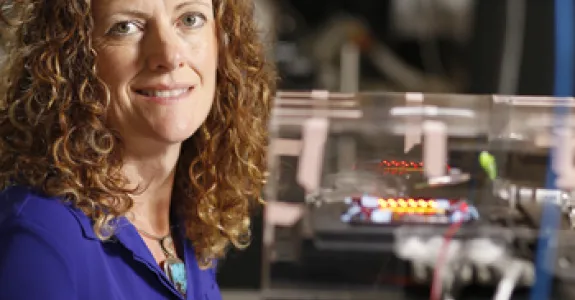
The Nelson lab's research objectives are to understand the cellular mechanisms involved in the development and maintenance of epithelial cell polarity. Polarized epithelial cells play fundamental roles in the ontogeny and function of a variety of tissues and organs. Recent studies indicate that the development of epithelial cell polarity is a multistage process requiring instructive extracellular cues (eg. cell-cell and cell-substratum contact) and the reorganization of proteins in the cytoplasm and on the plasma membrane. Once established, polarity is maintained by targeting and retention of proteins to functionally distinct apical and basal-lateral plasma membrane domains.
The lab has developed three strategies to address molecular and biochemical aspects of the mechanisms involved in these processes:
(i). Analysis of membrane and cytoplasmic protein sorting, targeting and distribution in established cell lines of polarized renal epithelia in tissue culture (eg. MDCK cells). Biochemical and molecular analysis of protein sorting into vesicles, transport and docking of vesicles with specialized membrane domains.
(ii). Structural and functional analysis of cell adhesion in epithelial cells. Molecular genetic approaches to disrupt cadherin and associated protein (catenins) functions. Role of cell adhesion in establishing docking machinery for transport vesicles.
(iii). In vitro studies of protein organization and interactions in purified and reconstituted cell systems.
(iv). In vivo studies of embryonic development of polarized renal epithelia in the normal mouse and the cpk mouse mutant, a murine strain with autosomal recessive polycystic kidney disease in which cell polarity is partially reversed.







